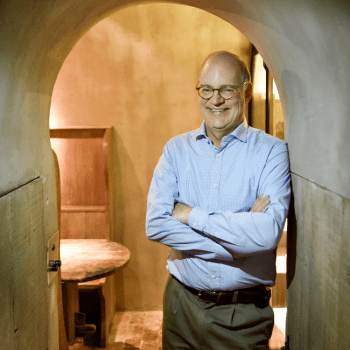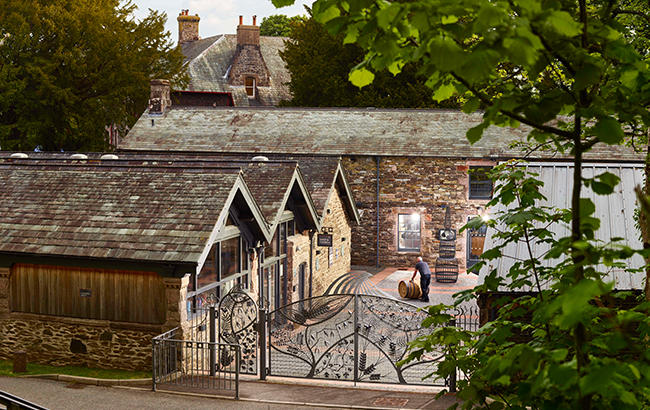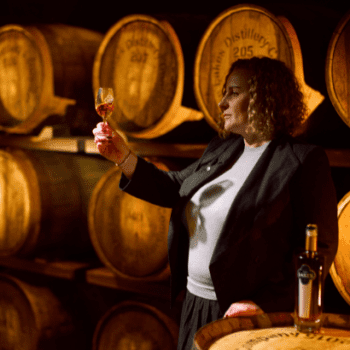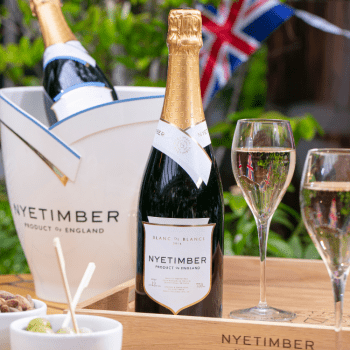Nyetimber takes synergistic approach to spirits
By Georgie CollinsIn June last year, English wine producer Nyetimber completed its purchase of The Lakes Distillery in a deal that valued the whisky maker at £71 million (US$89m). We spoke to the firm’s CEO and owner, Eric Heerema, about his plans for his newly acquired spirits brand, and how he hopes to bring synergy to the portfolio.

“We had started a process of looking to produce our own spirits, but we were also looking at existing products and producers, and whisky was something that stood out because of the nature of the products,” Heerema explains as we ask about the decision to bring a spirits brand into the Nyetimber Group fold. “It has some resemblance to sparkling wine production – there’s a similar way of craftsmanship and artisanal approach that we apply at Nyetimber.”
He shares that around that time of planning this category expansion – the tail end of 2022 – contact was made by accident with The Lakes, the single malt whisky distillery located in the Lake District of England. “It turned out that The Lakes was looking at investments in the company, and we got in touch with them, and well, a long story short: one and a half years later, we managed to take over the brand.”
Bringing an English spirit on board, Heerema says, was in keeping with the DNA of the Nyetimber Group’s long-term vision, which was to expand beyond producing English sparkling wine and into other English drinks, with the view of creating an English luxury drinks group.
However, when news of the acquisition first broke in April 2024, it was noted that The Lakes has struggled financially in recent years, reporting an audited loss of £1.3m (US$1.6m) in earnings before interest, taxes, depreciation, and amortisation (EBITDA) on net revenue of £5.8m (US$7.3m) for the year ending 30 June 2023. But these figures weren’t a concern to Heerema. “The Lakes was loss-making, and we knew that, of course, but so is Nyetimber,” he confirms. “Nyetimber is still not profitable, although we’re now approaching profitability – that should happen by next year, but we have a long breath financially, because we have a long horizon.”
Heerema’s plan for The Lakes should ultimately see the brand reach profitability, though he notes this is “years down the line”. “We have a long-term view in which we can accept loss-making in the interim years until we will be profitable. We have to increase production, which costs a lot of money, and we have to build on the brand. So for Nyetimber, that took many, many years, and it still requires enormous commitment financially to do so. So we are well prepared for taking such a company and leading it to ultimate profitability. It’s now 19 years with Nyetimber, but it won’t be anywhere near as long for The Lakes to become profitable.”

Growth opportunities
What is likely to help The Lakes grow is the incoming geographical indication (GI) for the English whisky category. “I think the GI is very important for the English whisky industry, and therefore also for The Lakes,” he says. “We are a founding member of the English Whisky Guild (EWG), and our whisky maker, Sarah Burgess, is a board member at the moment.
“We are one of the pioneers of English whisky, and we think that this geographic indication is a step towards ensuring that that quality standards are met.”
Heerema touches on the controversy currently shrouding the proposed GI, which has seen the Scotch Whisky Association (SWA), among others, hit out against the proposal on account of its single malt definition, which has said to be labelled a ‘single malt’, all the whisky in the product must be distilled at a single distillery, but, unlike in Scotch, mashing and fermentation can occur elsewhere.

It is the latter part of this definition that the GI’s opposers take issue with, but Heerema confirms that The Lakes is “not infringing on what is now being argued,” and rather the brand’s production methods “fully comply with the Scottish whisky making regulations.”
The conversation soon leads on to other controversies, and the inescapable topic of tariffs and how the on-going trade war may affect the brand. “It’s very hard to judge all these threats of tremendous punitive tariffs. They can easily be threatened, but also abolished again, so we don’t know what it means for the longer term.
“It frightens everyone a bit, but it also gives some opportunities I think,” he says, noting that the EWG has been in talks with Canadian distributors who are trying to enthuse English whiskies to come to Canada. “So there might be a future there if the American government persists with these tariffs, but at the same time, it could also be punitive for us in the UK and European markets, because imagine, for example, with sparkling wine, what happens if the French can’t export to the US, then they have surpluses that they might dump in Europe, including the UK. So it’s all bit uncertain. We have to wait and see what happens. It’s terrifying, but of course we hope for stability and sensible situations and ties between the countries and the economic blocs.”
Brand synergy
Heerema shares his hopes that growth and continued success for The Lakes will be achieved through several key strategies that will enable the company to leverage the synergies between the sparkling wine brand and The Lakes product line, which currently includes white spirits such as gin and vodka alongside single malt whiskies.

“I think where we really see synergy is in marketing and sales, as there’s a synergy in what the products represent as luxury drinks and how they are perceived by the consumer.” As such, he says, communication strategies for both are very much aligned, and this allows for the possibility of overlapping customer bases that can be reached through targeted marketing, although he is aware that in the Venn diagram of whisky and wine drinkers, the cross-over might not be big enough yet for this to be a reliable revenue maker. “We do realise that our consumer basis will, at least for the considerable part, be separate. Many wine drinkers are not necessarily whisky drinkers. It’s quite different. I think some connoisseurs of wine will go into whisky, but not that many. Maybe vice-versa a little bit more, because people are more commonly whisky drinkers who also drink wine, but we have to be very specific in our communication as to which groups we reach out to both marketing and PR wise.”
While the goal for the Nyetimber Group is to respect each brand’s unique identity, there are still strategic opportunities for cross-promotion and market expansion. Heerema notes there is scope to explore combined sales activations, such as joint listings in bars, restaurants and hotels, and he hopes there may be potential for cocktail collaborations that incorporate both sparkling wine and whisky.
But could we see even more collaboration between the two brands from a production point of view? “I think that that our whisky maker has had some spontaneous conversations with our winemakers about whether that would be possible,” he confirms, alluding to the potential to age the whisky in English wine barrels, but “this would be at very small capacity”, he says.
Going forward and making changes
Now that the dust has settled on Nyetimber Group’s acquisition of The Lakes, we wonder if Heerema has any plans to shake up how the brand is run in a bid to put his own stamp on its operations.
“We increasingly look at ways to be efficient within the whole group,” he says, sharing that the company has already put in place a project to improve the production process of waste management at the distillery while also developing environmentally friendly methods to handle production byproducts.
In addition, the company is creating reed beds that will allow for waste to naturally sink into the ground, however at the moment, it is having to apply for provisions due to the strict environmental criteria in place due to the distillery’s positioning within a national park.
Ultimately, however, Heerema notes that the key focus is on finding innovative ways to reduce waste and minimise environmental impact while maintaining high production standards and taking careful, considered approach to sustainability that respects the natural environment of the Lake District.
Related news
Copper & Kings relaunches portfolio post-acquisition
Beyond Spirits plans stock-for-stock acquisition strategy
Stock Spirits: mergers, acquisitions and creating value in a competitive market
